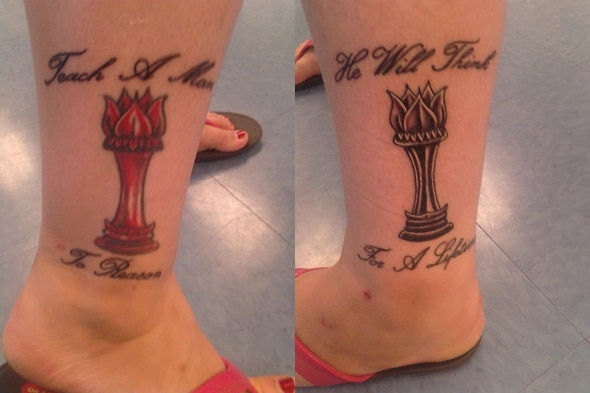Create a free profile to get unlimited access to exclusive videos, sweepstakes, and more!
Impact for a Lifetime

Talking to the public about science and rationality is an odd way to spend your life.
It can be maddening, when you go against those who oppose reality: homeopaths, anti-vaxxers, global warming deniers, young-Earth creationists. For those of us who love the Universe the way it is, going up against that tsunami of nonsense is a grueling and unending task.
Worse, in some ways, is wondering if what you’re doing is actually helping. Sure, I get traffic on my blog, or retweets, or “likes” on various social media. But those metrics are ephemeral, fleeting. Are there any indications of a more permanent effect?
Yes. Yes, there is. I recently got a note from a woman named Kristin Ormiston on Facebook. I know this sounds a bit self-serving, but bear with me. She had this to say:
Hi! I just wanted to message you to tell you I think you're amazing and inspiring! And I was encouraged to send you these pictures of the tattoos on my ankles, inspired by a quote of yours.
The pictures are these:
Oh. Wow. If you’re looking for some sense of permanence in what you do, someone getting something you said tattooed on herself is a pretty good sign.
The art in her tattoo represent queen chess pieces, with lotuses on top. As she told me, “The queen chess piece has the most freedom of any piece on the board. Intelligence and seeking knowledge is what I consider true freedom.”
That’s a pretty good quote, too.
The quote from me—“Teach a man to reason, and he’ll think for a lifetime”—is from my “Goals of Skepticism” talk I gave a few years ago. It’s had a bit of limelight; it was a Reddit banner, featured on a coffee mug, and used in a lovely Symphony of Science video (where I also give the quote’s context).*
I liked the phrase when I came up with it, but had no idea it would resonate so strongly with so many people. I’m glad it did, and I still stand by the idea. After all,”
The mind is not a vessel to be filled but a fire to be kindled.
Plutarch said that, nearly 2,000 years ago. We’re still learning, still struggling, to do as that phrase teaches, but the fact that we still know it after all these centuries is a sure sign of its impact.
*As I mention in those earlier posts, the sexist phrasing of the quote bugs me. But it’s based on the aphorism, “Give a man a fish and he’ll eat for a day; teach a man to fish and he’ll eat for a lifetime.” I already was changing the phrasing, and if I changed “man” to “person” it seemed to me that the connection to the original aphorism would be lost. In the end I kept the original phrasing to keep the connection apparent.


























